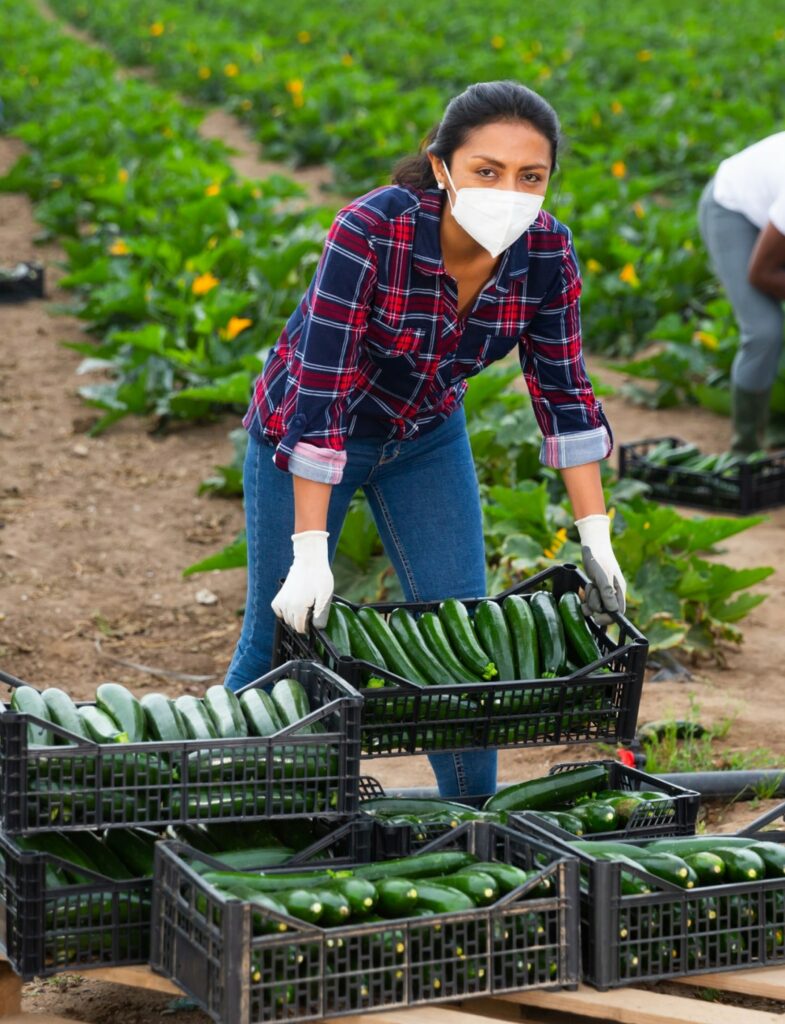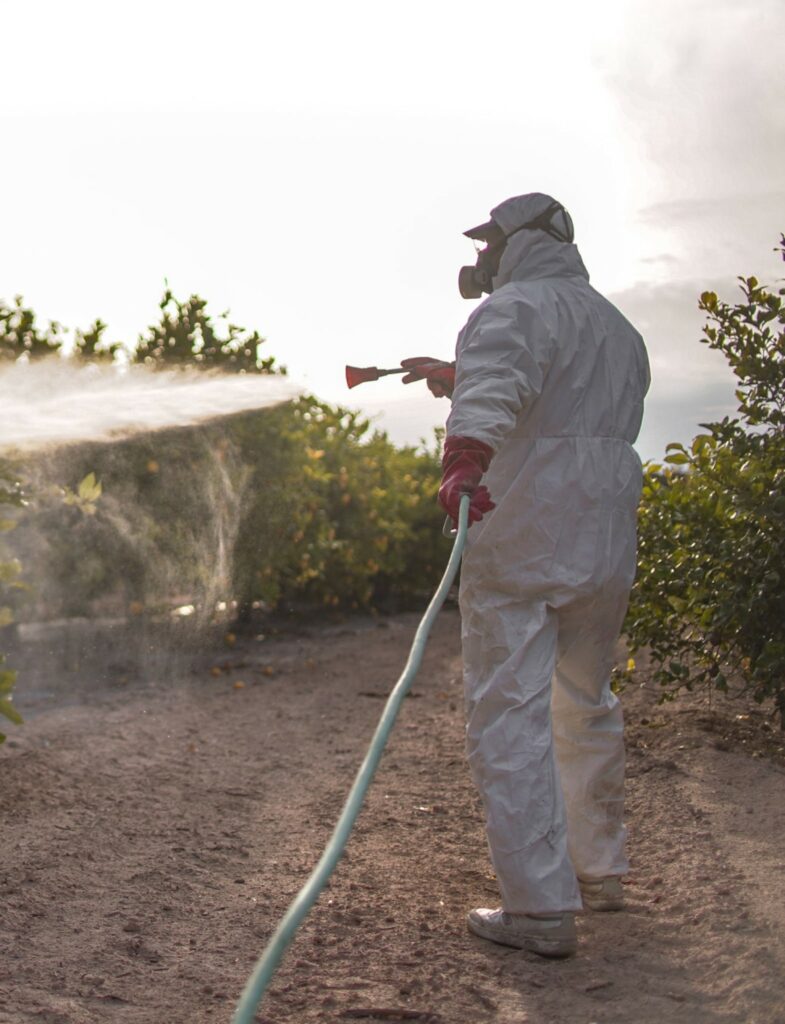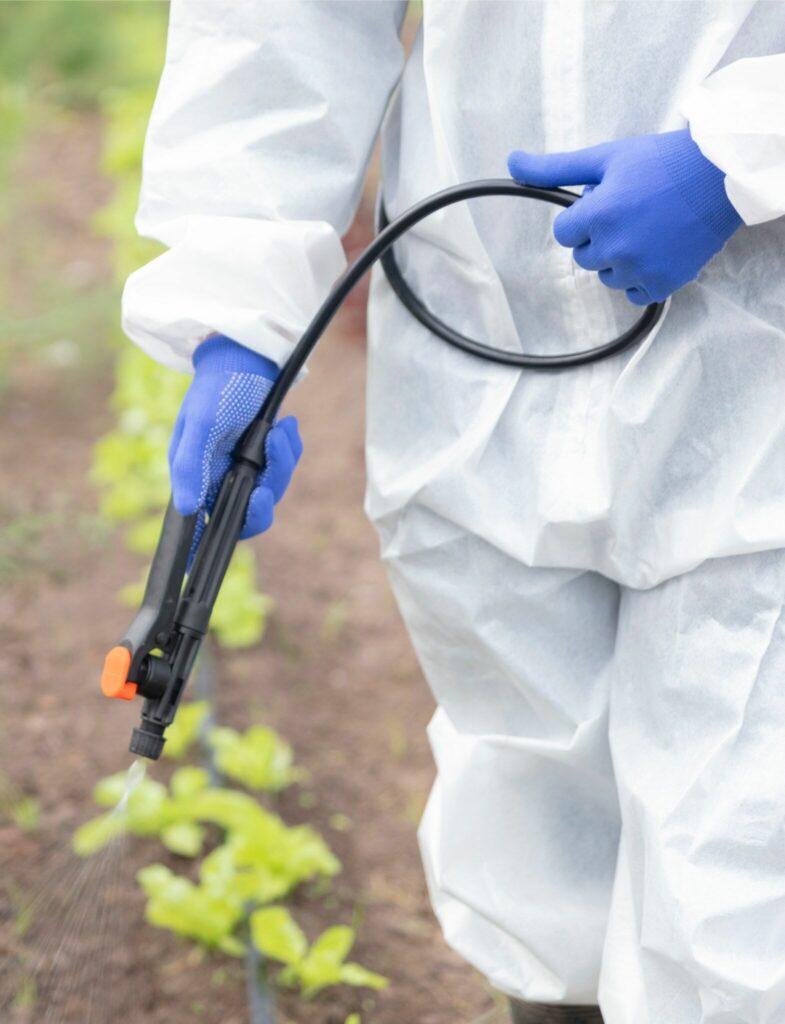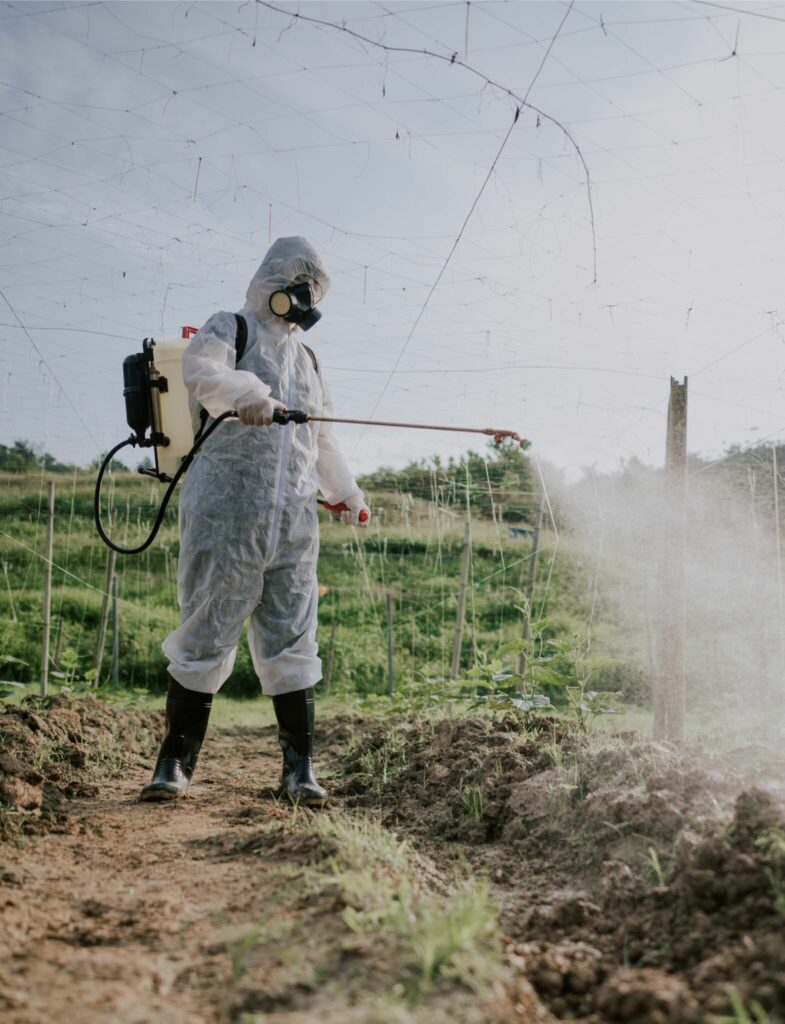
Workers
Agricultural workers do not apply or handle pesticides, but they work in areas where pesticides were used in the last 30-40 days. They perform activities that put them in contact with pesticide residue.

Handlers
Pesticide handlers are not licensed applicators, but they perform pesticide-handling activities. These include mixing and loading, assisting with applications, disposing of containers, and servicing application equipment.

Agricultural Employers
Agricultural employers must comply with the Worker Protection Standard. They include farms, forests, nurseries, greenhouse production facilities, and other sites.

Commercial Pesticide Handler Employers
Commercial pesticide handler employers perform application services for hire, sending licensed applicators to several sites. Their activities are included in the WPS even if some of the handling tasks take place outside the agricultural establishment.

Trainers of Workers
According to the WPS, trainers must be qualified, usually with a pesticide applicator license or completion of an EPA-approved Train-the-Trainer course. Trainers must use approved materials, keep records, and execute annual training events according to certain rules.

Trainers of Handlers
According to the WPS, trainers must be qualified, usually with a pesticide applicator license or completion of an EPA-approved Train-the-Trainer course. Trainers must use approved materials, keep records, and execute annual training events according to certain rules.

Labor Contractors
Sometimes, the labor contractor is the supervisor on site, and the agricultural employer (owner/operator) may ask them to help meet WPS requirements. For example, the labor contractor may perform WPS training, distribute hand-washing supplies, and provide emergency transportation.

Crop Advisors
A crop advisor, also known as crop consultant, is defined as any person who is assessing pest numbers, damage, pesticide distribution, or the status or requirements of agricultural plants.

Inspectors
Officials who enforce the WPS travel to agricultural establishments, conduct interviews, and perform inspections. These officials need to know the requirements inside and out, and they need a variety of checklists and forms. We have some to share.

Regulatory Guidance
Browse brief guides about protections for workers and handlers, the AEZ, posting, PPE, exemptions, training, respirators, and more, in English and Spanish.
